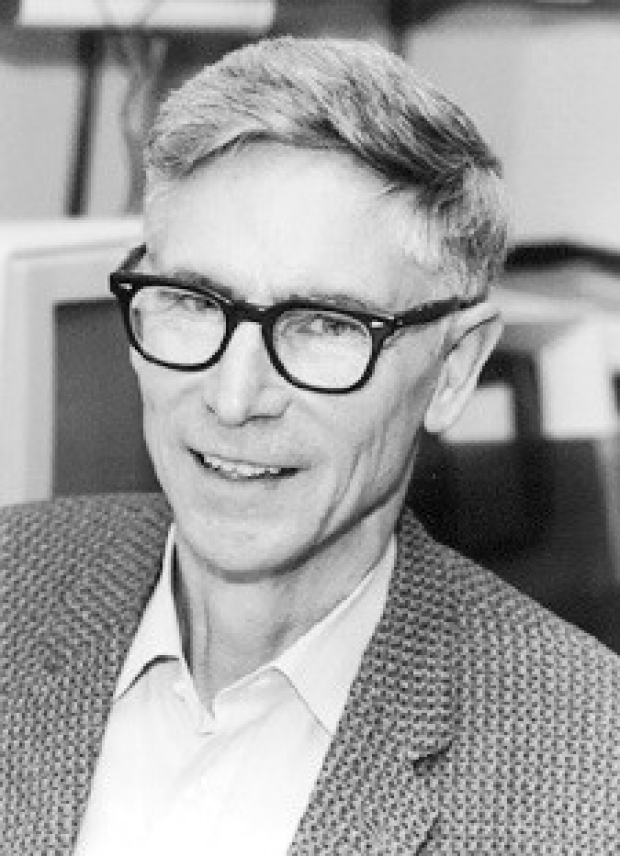In memoriam: Robert Baldwin
Robert Lesh Baldwin, a founding member of Stanford University’s biochemistry department and a member of the American Society for Biochemistry and Molecular Biology since 1957, died March 6 at his home in Portola Valley, California. He was 93.

“Baldwin devoted his career to studying how proteins, which begin life as linear chains of chemical building blocks, quickly assume their characteristic highly complex, functional structures,” an article posted on the Stanford Medicine news website stated. “His research sped a shift in many biologists’ attention from organismic biology, the study of creatures great and small, to molecular biology, which focuses on the individual biochemical reactions that underpin all living processes and on the molecules — usually proteins — responsible for catalyzing those reactions.”
Born Sept. 30, 1927, in Madison, Wisconsin, Baldwin was nicknamed “Buzz” by one of his sisters. He earned a bachelor’s degree in chemistry at the University of Wisconsin before attending the University of Oxford as a Rhodes scholar, where he received his D.Phil in biochemistry. He did a postdoc in physical chemistry at the University of Wisconsin and then joined that school’s faculty.
In 1958, Arthur Kornberg invited Baldwin to join a group of researchers from Washington University in St. Louis who were moving to Stanford to establish a biochemistry department. Baldwin began his tenure at Stanford as an associate professor and was promoted to full professor in 1964.
In 1965, he married Anne Norris, a postdoc in the lab of Paul Berg (another member of the Stanford biochemistry founding group, Berg went on to win the 1980 Nobel Prize in chemistry). Norris had been offered a faculty position at Harvard that year but chose to stay in California.
Baldwin served as Stanford’s biochemistry department chair from 1989 through 1994. He was a member of the National Academy of Sciences and of the American Academy of Arts and Sciences and a fellow of the Biophysical Society. He received the Stein and Moore Award of the Protein Society in 1992 and the Wheland Award in chemistry in 1995.
He had been an emeritus professor since 1998 and, according to Berg, continued to make major theoretical advances until the last five years of his life.
In addition to his wife, Baldwin is survived by two sons, David and Eric, and five grandchildren.
Enjoy reading ASBMB Today?
Become a member to receive the print edition four times a year and the digital edition monthly.
Learn moreGet the latest from ASBMB Today
Enter your email address, and we’ll send you a weekly email with recent articles, interviews and more.
Latest in People
People highlights or most popular articles

The data that did not fit
Brent Stockwell’s perseverance and work on the small molecule erastin led to the identification of ferroptosis, a regulated form of cell death with implications for cancer, neurodegeneration and infection.

Building a career in nutrition across continents
Driven by past women in science, Kazi Sarjana Safain left Bangladesh and pursued a scientific career in the U.S.

Kiessling wins glycobiology award
She was honored by the Society for Glycobiology for her work on protein–glycan interactions.

2026 ASBMB election results
Meet the new Council members and Nominating Committee member.

Simcox wins SACNAS mentorship award
She was recognized for her sustained excellence in mentorship and was honored at SACNAS’ 2025 National Conference.

From humble beginnings to unlocking lysosomal secrets
Monther Abu–Remaileh will receive the ASBMB’s 2026 Walter A. Shaw Young Investigator Award in Lipid Research at the ASBMB Annual Meeting, March 7-10 in Washington, D.C.
